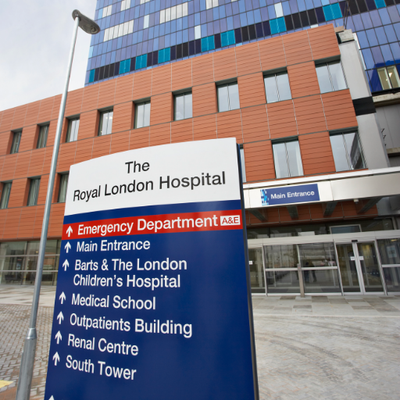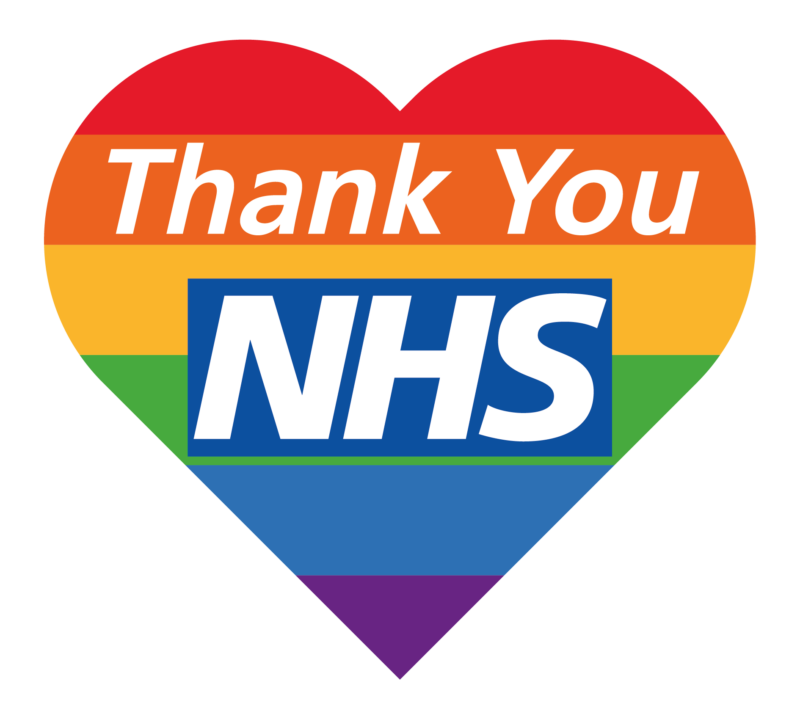Barts Guild Elective Grant – Covid-19 and the Class of 2020

April 30th, 2020
For the last few years, Barts Guild have offered financial grants to support medical student electives, for students without other recourse to support such an experience. An elective is a time allocated at the end of the medical degree for students to explore and gain experience in a particular area of interest, often in hospitals abroad; gaining unique insight into differing health systems and working practises. These grants were supported by a generous donation by the Wainwright family, in memory of Dr Laurence Cartledge; former Barts ophthalmologist who was reliant on similar financial support during his training.
However, in light of the Covid-19 pandemic, all planned electives were cancelled. This is just one change affecting the university, with a number of other changes occurring to teaching, placements, examinations and graduation etc. Many final year students have instead been supporting the work of the NHS as volunteers and many will be starting their employment sooner than expected. The General Medical Council have facilitated early emergency registration for a number of new doctors.
With this in mind, the elective grants this year are still being awarded to the students, to support living and transport costs whilst they undertake this important work. One planned recipient, James Stevens, had plans to travel to South Africa, to gain experience in paediatrics. Below is his report and experiences of working in the Emergency Department of The Royal London Hospital, Barts Health NHS Trust, during a period when response and knowledge of Covid-19 was changing at a rapid pace.
DR ANDREW SMITH
Trustee & Chair of Guild Membership
JAMES’S REPORT
2020 is not a year we shall forget. On March 27th the University delivered us both our exam results and our degrees, in the midst of a newly imposed national lockdown during the current Covid-19 pandemic. This award we have worked extremely hard for and would normally collect walking across the stage in a July graduation ceremony, was instead suddenly dropped on our doorstep from a safe distance. By April 8th, many of us were on the GMC register.
In the midst of all this madness, national anxiety and fear for our NHS, all the plans that had been months in the making for an elective, end of year celebrations and time with family, long neglected for final exams, suddenly vanished over the space of a few days.
It was not the end we expected or anyone could have predicted and there is little time to mourn what should or could have been had all plans gone ahead, but instead of being on the paediatric wards of the Charlotte Maxeke Hospital in Johannesburg, I find myself back at work, back in the emergency room of The Royal London Hospital in what will end up being an equally unforgettable experience.
I am fortunate to have been employed by Barts Health prior to everything going on around us, prior to the call to arms for medical student volunteers and the mad rush for all the administration processes involved in mass recruitment. My role as an ED assistant, something I’ve done for a number of years, fell in line with what was required by volunteers and I was immediately welcomed into the unit, but not as I remembered it. With eight newly qualified colleagues, The Royal London emergency department’s ‘EMCREW’ was born, a number that has subsequently grown to over 30 and includes Physician Associate (PA) students, pre-hospital medicine BSc students and dentists.
A bit like the daily updates from Boris, the emergency department was changing on a near daily basis. Nothing was where it was before, PPE (personal protective equipment) guidelines read at morning handover changed day by day and more and more the definition of the ‘diagnosis: possible COVID’ was transforming with each patient that walked through the door. It was in the first few days that it really hit home how unique this situation is – that nothing like this had been experienced by the NHS or indeed the world on this scale before. A department renowned for its organisation, resource and high-quality care was chasing, trying to keep up with an invisible illness that has the UK gripped firmly in its grasp.
It is at this point I can confidently say I was immensely proud to be part of the NHS, proud to be part of Barts Health and proud to be doing something towards the collective effort. From the cleaners organising rapid ‘deep cleans’ to keep the department moving, the catering staff feeding all the hospital without taking payment for food, and the nurses and doctors continually placing themselves at the patient’s bedside delivering care – everyone is coming together to get from one day to the next, in the hope that eventually we will have come through the other side.
It is unavoidable, however, that Covid-19 will cause heartbreak, sadness and loss to a level the NHS has not previously borne witness to.
The emergency room is an emotive place, where life and death walk hand in hand and human life is at risk. Whether it’s a bruised finger or a traumatic brain injury, having a loved one in the emergency room is awful. So then, to tell each and every patient and relative at the door ‘no visitors’ was my first heartbreak moment. When it comes to Covid-19, we don’t know which patients will do well or which will fall off the cliff and require significant intervention. We therefore cannot give the reassurance that all will be OK when people leave their loved ones with us at the door. We will give them the best of us, the best treatment we can offer with the resources we have, but we cannot take away the anxiety, fear and loss that you will feel when they walk around the corner or into a cubicle, or indeed the isolation, loneliness and again – fear – that they will feel when you are out of sight. This for me has been my hardest experience so far and encases all that comes after it – the too-young patients who end up needing intubation, the frail elderly with a ‘normal’ chest infection that passes away in a closed room surrounded by strange faces masked in PPE. There will be lessons in this that I will take forward throughout my future career, the beginning of which I feel will be spent processing current events and experiences.
PPE, like ‘unprecedented time’, is a phrase no person shall want to hear for the foreseeable future. I truly believe in the power of a friendly face in the hardest of times making a difference, a memo that PPE seems not to have got. Unexpected lessons come from things often overlooked and I have found that more and more of what I am saying and how I am saying it is of the utmost importance when the sound is coming from behind an FFP3 mask, unmoving and emotionless.
A recent trend has seen ‘friendly face’ laminated cards being attached to nurses and doctors to try and combat this – a particular highlight was Dr Alex George pinning his ‘Love Island’ profile picture to his scrubs – resulting in an odd picture of normality pinned onto the current strange working conditions of the NHS. I vow never to forget in all my career the power of a smile, a friendly hello and a handshake. Step 1 medicine – kindness.
Whilst the next steps in this uncertain time we’re currently in offer no sign of making themselves immediately known to any of us, a few things are certain. The UK has a new host of newly qualified NHS doctors, nurses, physician associates and allied health professionals who, just weeks into qualifying, are on the front line in the midst of one of the greatest challenges the NHS has ever faced. I think I can speak for all of us when I say – we’re glad we can do something, we’re glad to be part of the NHS family. There is also certainty to some extent in our careers, which can’t be taken for granted given the economic crisis many families find themselves in across the country.
It may come to pass that Foundation Year 1 comes around a lot sooner than anticipated. Many of us new doctors are now on the GMC register, ready to be allocated the interim contracts to take us to our planned August ‘black Wednesday’ release – the first Wednesday in August when newly qualified doctors usually hit the wards.
There is a lot of apprehension and nervousness amongst us, but also a readiness that comes with 5 years of training at one of the top medical schools in the country and experience in some of the world’s leading hospitals.
When the end of this pandemic comes afoot, I hope I won’t grieve the experiences and opportunities I lost but be thankful for those that I gained. There unfortunately are no easy paths in the current national situation, but it is with hope that I think about the future of my career, of the NHS and the UK.
DR JAMES STEVENS
Barts Guild Elective Grant Recipient, who qualified from Barts and The London SMD 2020

